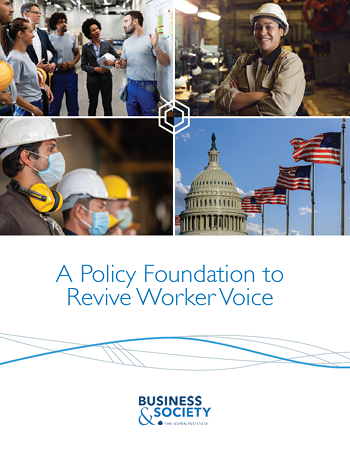Worker voice is resurgent in the American economy, but workers have a lot to overcome. For at least four decades, public policy has steadily undermined the ability of workers to weigh in on issues affecting them in the workplace. In the current moment of reckoning about how we value the essential work in our economy, the stark racial economic gaps across the country and deep political divisions, worker voice is a critical tool for sharing prosperity, invigorating productivity, correcting injustice and healing divides.
In September 2020, The Aspen Institute Business & Society Program invited 20 experts in corporate governance, labor law, finance, racial justice and worker advocacy to identify key leverage points for enhancing worker voice for the 21st century economy. Through a series of roundtables, the group identified a range of levers in public policy, corporate governance and management practices that could have meaningful impact on the lives of workers and the long-term health of companies.
In the output above we share a set of public policy ideas that focus on:
- Enhancing worker voice at all companies
- Establishing new basic disclosure on the treatment of workers
- Ensuring that institutional investors are accountable to worker-beneficiaries

